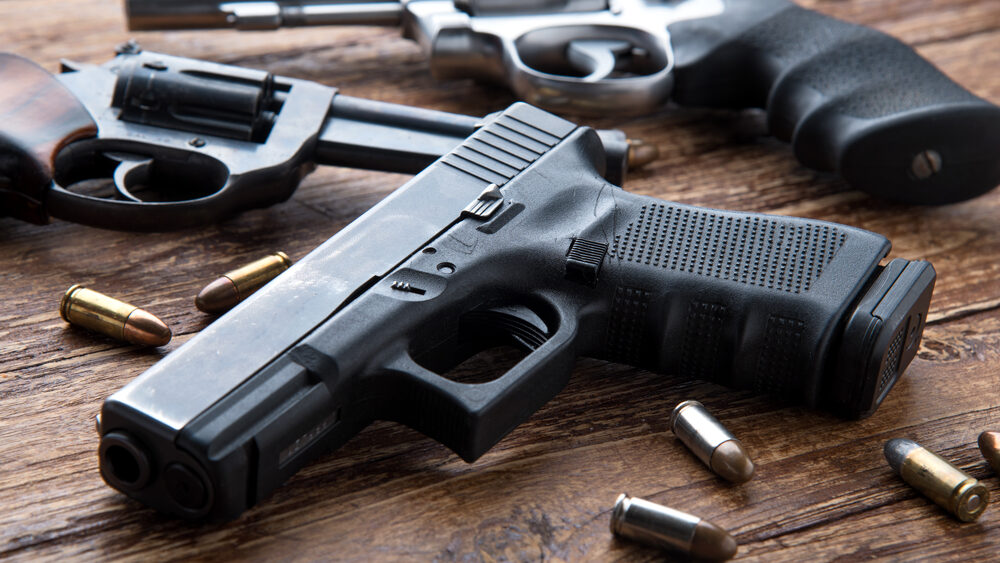Defending Against Unlawful Possession of a Weapon Charges in New Jersey
October 3, 2023

In the State of New Jersey, unlawful possession of a weapon is taken seriously and can result in severe penalties if you are convicted. Such charges not only threaten one’s freedom but also tarnish one’s reputation. If you or someone you know is facing these charges, it’s essential to understand the gravity of the situation and seek professional legal counsel immediately. In this post, we will explore the intricacies of these charges and the defense strategies employed by Aydelotte Law, LLC, a leading law firm in New Jersey.
Understanding Unlawful Possession of a Weapon in New Jersey
In New Jersey, weapons possession laws are stringent. Unlawful possession charges can arise from having firearms without a permit, possessing weapons with an intent to use them unlawfully, or even having certain prohibited weapons. The types of weapons range from firearms to even certain types of knives or other objects that can be considered dangerous.
The charges vary based on the type of weapon and the circumstances surrounding its possession. Generally, the charges can range from a 4th-degree crime to a 2nd-degree crime, with penalties including long prison sentences and hefty fines.
Factors Influencing the Charges
New Jersey’s strict stance on weapons is evident in its comprehensive statutes. These laws are complex, and various factors can influence the severity of charges when one is accused of unlawfully possessing a weapon. Recognizing these factors can be critical for understanding the potential implications of a charge and the subsequent legal strategy. Below, we outline the main factors that can influence unlawful possession of a weapon charge in New Jersey.
1. Type of Weapon
- Firearms: Handguns, rifles, and shotguns each have specific regulations. Possession without the appropriate permit or license is treated severely. Handguns, for instance, attract some of the heaviest penalties.
- Prohibited Weapons: Items like gravity knives, switchblades, brass knuckles, and certain other weapons are outright prohibited and can lead to criminal charges if possessed.
2. Possession Context
- Purpose of Use: The intention behind possessing the weapon plays a role. For instance, possession with the intent to harm someone is treated more severely than simple possession.
- Active Use: A weapon used in the commission of another crime (e.g., robbery or assault) will typically result in enhanced charges and penalties.
3. Location of Possession
- School Zones: Possessing a weapon within a school zone, regardless of intent, carries additional penalties. This also includes educational institutions and school buses.
- Government Buildings: Possessing a weapon in or near certain government facilities can heighten the severity of the charge.
4. Prior Criminal Record
- Previous Convictions: Individuals with prior convictions, especially those related to weapons, violence, or other felonies, are likely to face stiffer penalties if charged again.
- Probation or Parole: Being found in possession of a weapon while on probation or parole can lead to violations of those terms and additional consequences.
5. Validity of Search and Seizure
While not a direct factor in the severity of the charge, the circumstances surrounding the discovery of the weapon can influence the case. If the weapon was found during an illegal search and seizure, evidence could be excluded, potentially leading to reduced or dropped charges.
6. Transportation and Storage
How a weapon is transported or stored can affect charges. For instance, firearms in a vehicle should be stored unloaded and secured in a locked container. Failure to follow these guidelines can escalate the charges.
7. Age of the Individual
Minors found in possession of weapons could face different legal processes and penalties compared to adults. Additionally, adults providing weapons to minors can face enhanced penalties.
Defense Strategies
Facing charges for unlawful possession of a weapon in New Jersey can be a daunting experience given the state’s strict weapon laws. However, with a comprehensive defense strategy, it’s possible to contest these charges effectively. Here, we delve into the defense strategies that can be employed when confronted with such charges in New Jersey.
1. Challenging the Legality of the Search and Seizure
- The Fourth Amendment of the U.S. Constitution protects individuals from unreasonable searches and seizures. If law enforcement did not have a valid reason (probable cause) to search you or your property, or if they did not obtain a necessary search warrant, the evidence found (in this case, the weapon) may be deemed inadmissible in court.
2. Demonstrating Lack of Knowledge or Intent:
- If you can establish that you weren’t aware of the weapon’s presence, the charges could be contested. For instance, if someone else left the weapon in your vehicle or home without your knowledge, this could form a valid defense. Similarly, demonstrating a lack of intent to use the weapon unlawfully can be a powerful argument.
3. Presenting Valid Permits or Licensing:
- Perhaps you have a permit or license for the weapon, but it wasn’t on your person or readily accessible when confronted by law enforcement. Presenting this documentation in court can lead to charges being dropped or reduced, especially if there was a genuine reason you couldn’t produce them when initially asked.
4. Raising Doubts About Actual Possession:
- “Constructive possession” suggests that even if you didn’t have the weapon on your person, you had control over the area where it was found. Challenging this notion, especially when the weapon was found in a shared space with multiple occupants (like a shared vehicle or home), can be an effective defense.
5. Asserting Self-Defense:
- In limited scenarios, if you can prove that you possessed the weapon purely for immediate self-defense against a credible threat, it might act in your favor. However, this defense is complex and requires substantial evidence to support the claim of a genuine threat.
6. Highlighting Errors in Law Enforcement Protocol:
- At times, law enforcement may make procedural errors during the arrest, weapon confiscation, or processing. Identifying and presenting these errors can challenge the credibility of the evidence and potentially lead to case dismissal.
7. Negotiating Plea Deals:
- In some scenarios, especially when the evidence against the defendant is substantial, it might be strategic to negotiate a plea deal. This could lead to reduced charges or penalties in exchange for a guilty plea.
8. Citing Exemption Clauses:
- New Jersey weapon laws have certain exemption clauses. For instance, transporting a firearm between one’s home and a shooting range in a secure manner might be permissible. Being aware of and citing these exemptions can aid your defense.
Why Choose Aydelotte Law, LLC?
- Expertise: With a team of experienced attorneys, we have a deep understanding of New Jersey’s weapon possession laws and have successfully defended numerous clients against these charges.
- Personalized Approach: We understand that every case is unique. Our lawyers take the time to understand every detail of your situation, ensuring the best possible defense strategy is employed.
- Commitment: At Aydelotte Law, LLC, we are committed to ensuring our clients’ rights are upheld. Our primary goal is to achieve the best possible outcome for our clients, whether it’s getting the charges reduced or even dismissed.
Contact an Experienced Criminal Defense Lawyer at Aydelotte Law, LLC for a Free Consultation About Your Case Today
Facing charges for unlawful possession of a weapon can be daunting. However, it’s crucial to remember that charges do not equate to convictions. With the right legal representation, it’s possible to mount a robust defense against these allegations. If you or someone you know is facing such charges in New Jersey, don’t hesitate to contact Aydelotte Law, LLC. Our team of dedicated professionals is here to help, guide, and fight for your rights.



